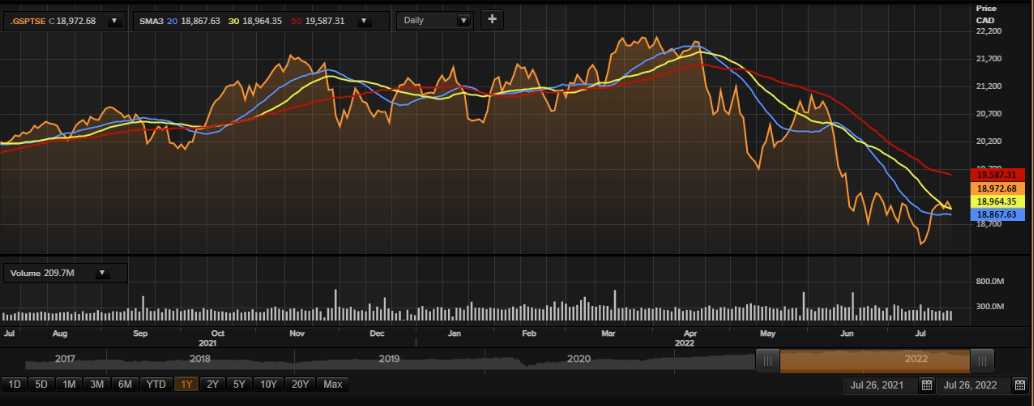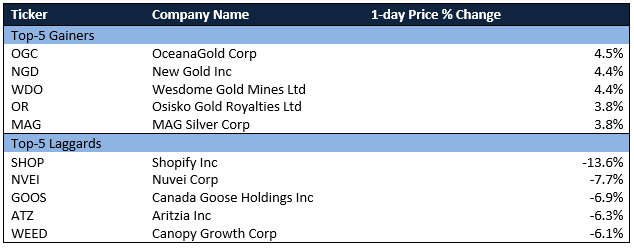At market close on Tuesday, July 26, Canadian stocks were down because of losses in the tech, health care, and consumer discretionary sectors. The S&P/TSX Composite Index fell 0.69 per cent at the close in Toronto.
The IT sector declined significantly by 4.6 per cent, and the health care sector losses stood at 2.6 per cent. Due to the anticipated rate hike by the US Federal Reserve, investors in Canada have become cautious and that might have triggered a sell-off in the equities markets.

One-year price chart of TSX Composite Index along with SMA 20-day, SMA 30-day, SMA-50-day (July 26). Analysis by © 2022 Kalkine Media®
Volume Active
Athabasca Oil Corporation (TSX:ATH) saw approximately 10.9 million shares traded on July 26 and was the most active stock on the Toronto Stock Exchange (TSX). It was followed by one of the biggest bank stocks, Royal Bank of Canada (TSX:RY), which saw 7.4 million shares exchanged hands, and Manulife Financial Corporation's (TSX:MFC) 6.7 million shares traded hands on the TSX.

Wall Street updates
After the market closed on Tuesday, US equities declined as losses in the consumer services, technology, and financial sectors drove down stock prices.
The NASDAQ Composite Index sank 1.87 per cent, the S&P 500 index fell 1.15 per cent, and the Dow Jones Industrial Average declined by 0.71 per cent at the NYSE close.
Commodities
Gold Futures for August delivery decreased 0.21 per cent to US$ 1,715.55 a troy ounce. While this was happening, the price of September delivery crude oil dropped 1.48 per cent to US$ 95.27 per barrel, and the October Brent oil contract dropped 0.70 per cent to US$ 99.49 per barrel.
Currency news
While CAD/EUR increased 0.81 per cent to 0.77, CAD/USD remained constant at 0.78. Meanwhile, the US Dollar Index Futures were up by 0.66 per cent to 107.06.





